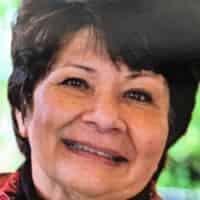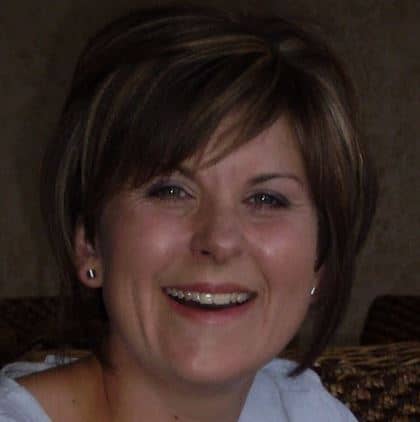

I, Luka Barbir, was born in 1933 on a small farm in Prolog, a tiny village on the Croatian and Bosnia-Herzegovina border. I was the oldest of 7 boys and 2 girls. I remember learning from my Grandfather. One day he was drinking ‘Sljvivovica,’ a home-made plum brandy. He pointed to the bottle and said “this is medicine and poison”. He filled a glass and said “this is medicine”, then he picked up the bottle and said “but all of this is poison”.
During World War II I was a young boy. It was a hard but we were some distance from the fighting and all the villagers worked together. After the war, Croatia, Bosnia-Herzegovina, Serbia and others formed Yugoslavia under Tito. He was Croatian like me, but it was a Communist regime and unless you were a party member and denied the church it was difficult to get good consistent work. All males had to do 2 years national service. I did my service at 21, then worked as a builder. But I did not want to join the party so it was impossible to get ahead. I had a friend who was a train inspector and I asked him to help me leave. He suggested Austria as the best destination. He sent me a telegram in the winter of 1958 telling me to be at a certain place at a certain time. I met the train with 1 litre of water, a loaf of bread, a salami, and a small amount of money. My friend hid me amongst a cargo of grapes and I stayed there until we had crossed the Austrian border. I then made my way to the Austrian police who arrested me and put me in jail. I was there for 4 weeks until they decided I was not a criminal and I was put in a refugee camp. The camp was full of eastern Europeans – Croatian, Serbs, Hungarians etc. A Catholic refugee agency helped me apply for immigration. When they asked me where I wanted to go, I asked them which Country has the shortest waiting list. They said Australia. I had an Uncle in Sydney who agreed to sponsor me so I applied to go to Australia. After 6 months in the refugee camp I bordered a ship for Sydney. The agency paid the passage on condition I stayed for 2 years.
We docked in Sydney in 1959. I saw it was a beautiful big city. I had a picture of my Uncle and when I saw someone who looked like the picture I went to him. He asked me what I wanted to do and I told him I needed to earn money fast. “Well”, he said, “if you are prepared to work very hard then it would be best to go to Far North Queensland where you get well paid work in the cane and tobacco seasons”. I had a cousin in Cairns so I took a train and joined his cane cutting gang.
When the cane cutting finished I went to tobacco farms in Dimbulah. I worked for a number of Croatian farmers on Wolfram Road. In those days they used to call Wofram Road “Balkan Road”.
I did the two seasons, sugar and tobacco, for a few years before I became a share farmer in Dimbulah. On 22 March 1964 I was introduced to Anka my wife. On 22 June we got engaged and on 22 August we got married.
Not long after I had been in Australia my Uncle told me he wanted to help my brother come to Australia. I told him that if he was not going to sponsor him then I would as soon as I could. He sponsored my brother and then I was able to sponsor a younger brother and a brother in law to come to Australia. Now I have 2 brothers still living in Croatia, one in Germany and 2 in Australia.
The hardest thing about coming to Australia was the language. Some people would use sign language- if the wanted pork they would say “Oink. Oink” to make themselves understood. I had a friend who knew how to say “leg of lamb” and for a long time that is all he ate because that was all he could order! I did not find the food too much of a problem because in the work gangs you would take turns to cook so you would cook good food. We ate a lot of roast and steaks which we did not get much of in Croatia.
Missing the family was very hard. We did not have a phone and the village where I came from did not have phones so you could not get in touch to see how people were. Most important messages were sent by telegram.
After a few years of share-farming I was able to buy a farm in Chewko Road. It came with a quota of 7 tonnes. Over the years we were able to increase that to 29 ton.
Looking back on my life I feel content. Although I left a country I loved and still struggle with the language, with Anka I have been able to raise a family and build a life for us. My two oldest boys live on the farm although the tobacco is no more. They have some tea trees and mango’s but both of them have jobs as well. My daughter graduated from University and my youngest boy is a cameraman and has travelled all over Australia with his work. My family now comes from many lands with a daughter-in-law from an Italian, another from Irish backgrounds, and a son-in law who is 5th generation Australian. I have 8 wonderful grandchildren who can do whatever they want with their lives. I miss Croatia and I miss the life I could have had there. But I am happy with the life I have lived and grateful that I was given the chance to raise my family in Mareeba.


Angela was born in Mareeba but like most young people left to pursue a career in Corrections and then Community Services. On retirement, she returned to her home town and is happy to be contributing to progression and preservation.

Since the age of 20, Al has been part of the radio industry working at stations 4VL, 4CD, 4RO, 2ST, 2LT, 3BO, 4ZR, 4VL (again) 4KZ, KOOL FM, 4AY, KIK FM & 4AM.

We are a local app design company located right here on the Atherton Tablelands. Drop us a quick email and we will help you analyse what a new or improved app might mean to your business.

Janet commenced work with the Mareeba Heritage Centre in July 2016. She had the vision to create this project and was instrumental in acquiring funds and putting the right people in place to bring this project together. Janet is passionate about community engagement and development.
© Mareeba Heritage Museum and Visitor Information Centre 2026